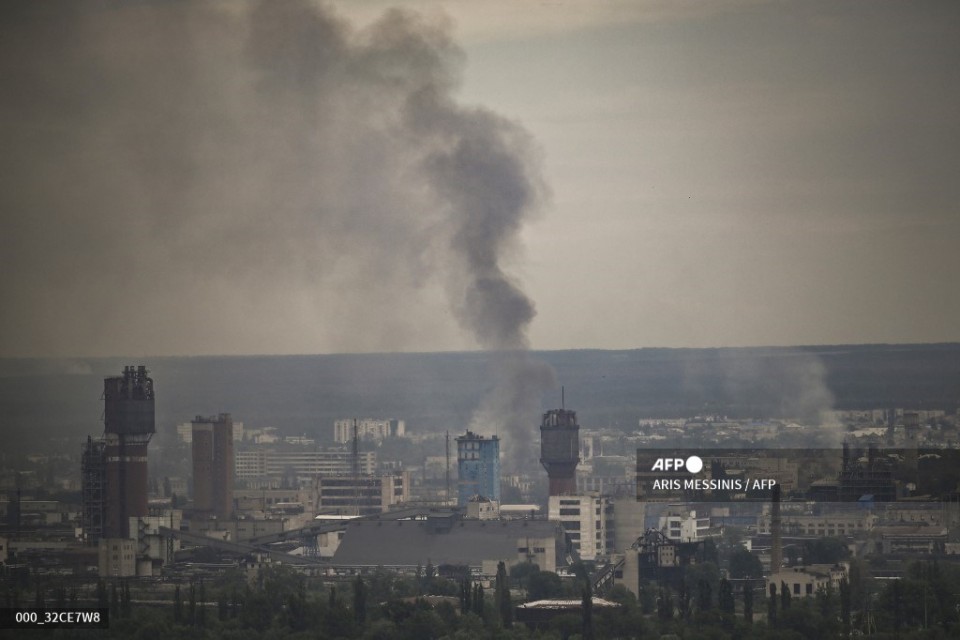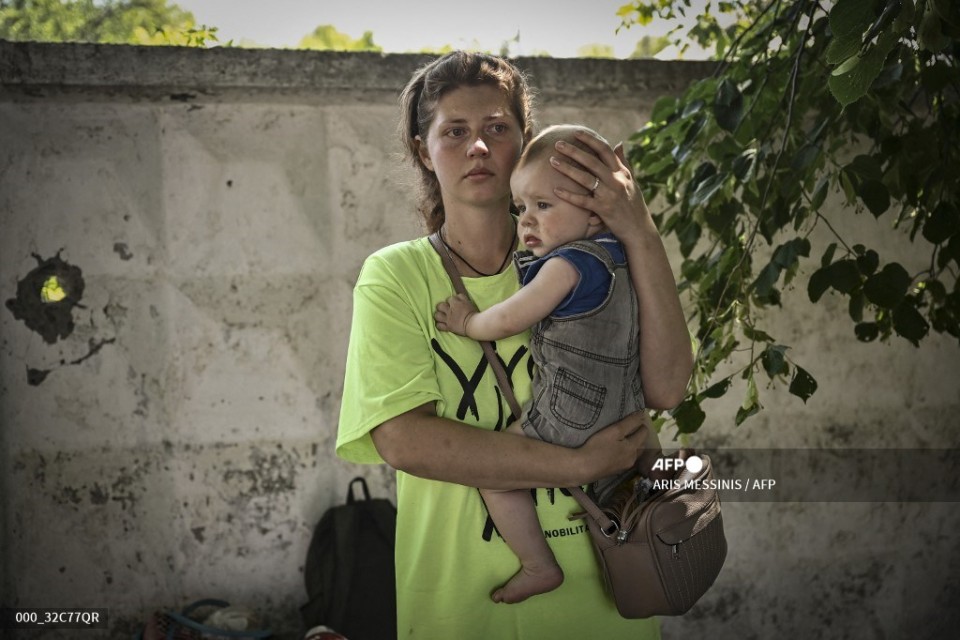by Anna Malpas with Benoit Finck in Kyiv
Russian forces on Tuesday stepped up efforts to cut off Ukrainian troops in the key industrial city of Severodonetsk in the east of the country despite Ukrainians insisting they were holding on.
Moscow has laid siege for weeks to the cities of Severodonetsk and Lysychansk, which are separated by a river, as the last areas in the eastern Donbas region of Lugansk still under Ukrainian control.

The head of Severodonetsk’s administration said “massive shelling” had destroyed a third bridge linking the twin cities, but insisted his city was “not isolated”.
“There are communication channels even if they are quite complicated,” Oleksandr Stryuk told Ukrainian television. Ukraine’s “continue to defend the city” but that the situation on the ground “changes every hour,” he added.
On Monday, Sergiy Gaiday, governor of Lugansk, told Radio Free Europe that Russian forces had “destroyed all the bridges and getting into the city is no longer possible. Evacuation is also not possible”.
Ukrainian President Volodymyr Zelensky has branded the human cost of the battle for east “simply terrifying,” urging Western allies to speed arms deliveries to shore up Ukraine’s ability to reclaim territory.
“We just need enough weapons to ensure all of this. Our partners have them.”
His presidential advisor, Mikhaylo Podolyak, has listed hundreds of howitzers, tanks and armoured vehicles as among items needed by the Ukrainian army.

– ‘Tear off their arms’ –
“To end the war we need heavy weapons,” he tweeted.
Last week, Ukraine’s defence minister said up to 100 Ukrainian troops were being killed and 500 sustaining injuries every day.
The capture of Severodonetsk would open the road to Sloviansk and another major city, Kramatorsk, in Moscow’s push to conquer Donbas, a mainly Russian-speaking region partly held by pro-Kremlin separatists since 2014.
AFP team in Lysychansk saw massive damage after months of shelling, with no water, electricity or phone signal.
The Ukrainian military is using high ground in the city to exchange fire with Russian forces fighting for control of Severodonetsk, just across the water.
Lysychansk resident Maksym Katerin buried his mother and stepfather in his garden on Monday after a shell ripped through his yard, killing them instantly.
“I don’t know who did this, but if I knew, I would tear off their arms,” he said.
Neighbour Yevgeniya Panicheva wept.
– ‘Surrender or die’ –
Katerin’s mother was lying on the ground, “her stomach was ripped and her guts were falling out. She was a very good, kind and helpful woman. Why did they do this to her?” Panicheva said.
“They bomb and they bomb, and we don’t know what to do.”
The Lugansk governor said Ukraine’s forces had been pushed back from Severodonetsk’s centre with the Russians controlling 70 to 80 percent of the city in their attempt to “encircle it”.
With Russia turning the screw on Severodonetsk, Ukrainian forces have two choices: “to surrender or die”, said Eduard Basurin, a representative for pro-Russian separatists.
On Monday, Amnesty International accused Russia of war crimes in Ukraine, saying that attacks on the north-eastern city of Kharkiv — including banned cluster bombs — had killed hundreds of civilians.
“The repeated bombardments of residential neighbourhoods in Kharkiv are indiscriminate attacks which killed and injured hundreds of civilians, and as such constitute war crimes,” the rights group said in a report about Ukraine’s second-biggest city.
– ‘Hands tied’ –
In Bucha, a town near Kyiv that has become synonymous with allegations of Russian war crimes, police said Monday they had discovered another seven bodies in a grave.
“Several victims had their hands tied and knees bound,” Kyiv regional police chief Andriy Nebytov said on Facebook.
Dozens of bodies in civilian clothing were found in the town in April after Russian troops withdrew from the area following a month-long occupation.
Away from the battlefield, Russia’s war in Ukraine has posed a threat to global food security. Ukraine’s deputy agriculture minister said Monday that a quarter of his country’s arable land had been lost but insisted national food security was not threatened.
On a farm near the southern Ukrainian city Mykolaiv, the harvest has been delayed by the need to undo damage by Russian troops who passed through the area in March.
“We planted really late because we needed to clear everything beforehand,” including bombshells, Nadiia Ivanova, 42, told AFP.
The farm’s warehouses currently hold 2,000 tonnes of last season’s grain but with normal export routes blocked or damaged by the war, there are no buyers for the harvest.
burs-sea/jm







